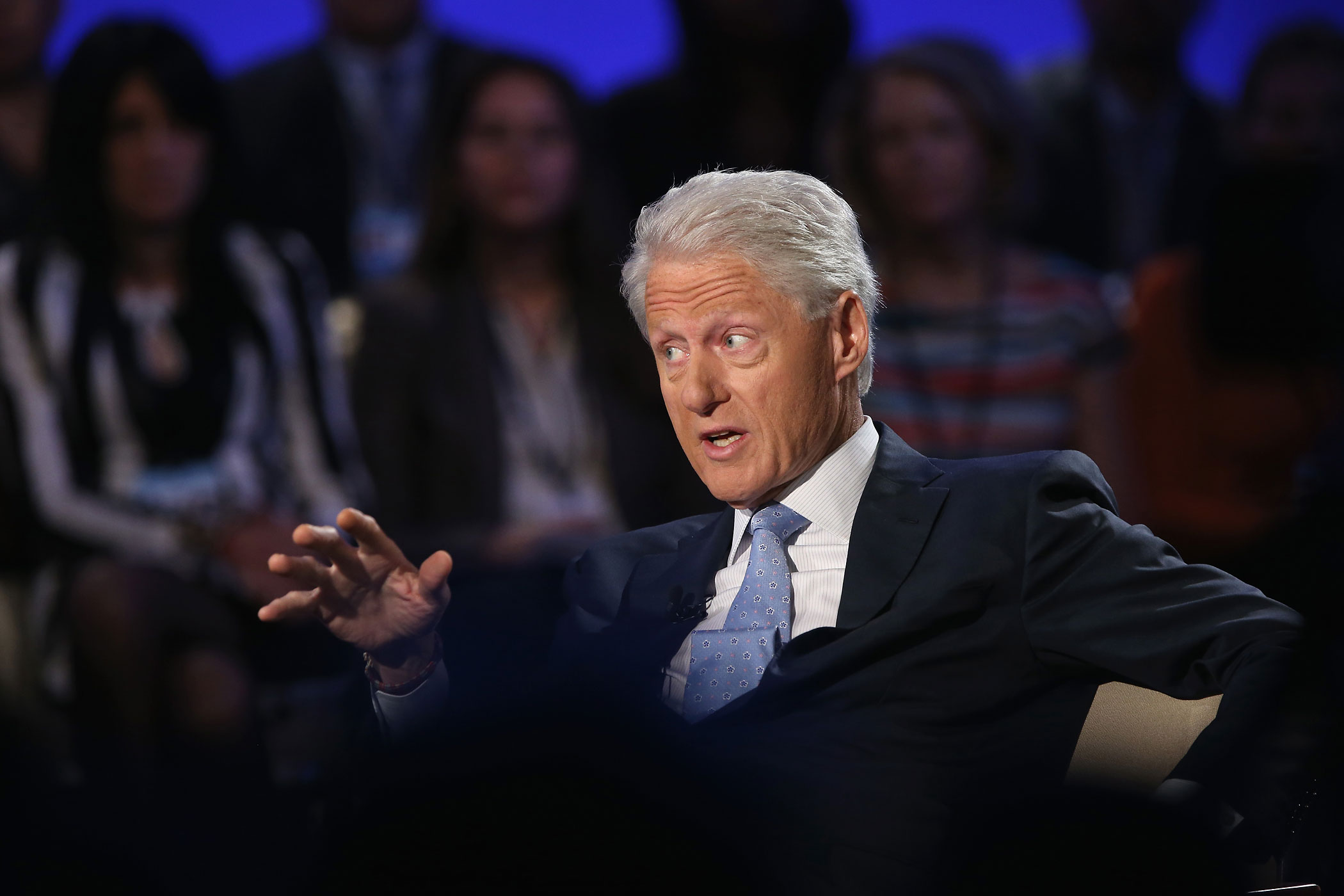
President Bill Clinton says it’s time to revamp the corporate tax rate that he signed into law during his tenure as the nation’s leader.
Speaking at the 10th annual Clinton Global Initiative conference Tuesday, Clinton discussed the issue of so-called corporate “inversions” — the practice of relocating a company’s headquarters overseas to take advantage of a lower tax rare.
Clinton told CNBC’s Becky Quick that the U.S. Treasury Department is doing what it is legally obligated to do, which is collect what money is due under American law. The real problem needs to be solved on the floor of Congress, and it demands a bipartisan solution, he said.
“We’re bailing water out of a leaky boat,” Clinton said. “This is practical economics and practical politics.”
The Treasury announced new measures Monday to stem the tide of corporations buying foreign companies in order to move abroad and take advantage of lower tax rates. Thirteen such deals worth $178 billion have been announced this year, according to Dealogic. A couple examples include Burger King’s purchase of Canada-based Tim Hortons and Medtronic’s nearly $43 billion deal to buy Irish medical-device maker Covidien.
When the current 35% corporate tax rate was signed into law in 1993, it was on par with other nations around the globe. Many of those foreign rates have since lowered their corporate tax rates, setting the scene for the current tax inversion-friendly environment. For example, Canada’s corporate tax rate is between 11% and 15%, and Ireland’s is about 12.5%.
Now the U.S. is one of the highest corporate tax rates globally, and that just won’t work anymore, Clinton said. The U.S. legislature has failed to review the standard corporate tax rate in relation to other nations since the mid-1990s — and that could continue to affect the nation’s competitive stance.
Clinton shied away from labeling tax inversions either patriotic or non-patriotic, dodging one of Quick’s questions. But he did say he believes that the corporate tax rate can be lowered while closing existing loopholes and still allow the government to collect the same amount of tax revenue.
Clinton praised American companies such as Corning and Dow Chemical. Both, he said, have focused on keeping jobs in the U.S. He also praised Alibaba Group CEO Jack Ma, whose company just launched the largest initial public offering ever late last week.
Clinton praised Ma’s approach to business: He focuses first on customers, then employees and shareholders third, Clinton said of Ma.
More Must-Reads from TIME
- Donald Trump Is TIME's 2024 Person of the Year
- Why We Chose Trump as Person of the Year
- Is Intermittent Fasting Good or Bad for You?
- The 100 Must-Read Books of 2024
- The 20 Best Christmas TV Episodes
- Column: If Optimism Feels Ridiculous Now, Try Hope
- The Future of Climate Action Is Trade Policy
- Merle Bombardieri Is Helping People Make the Baby Decision
Contact us at letters@time.com